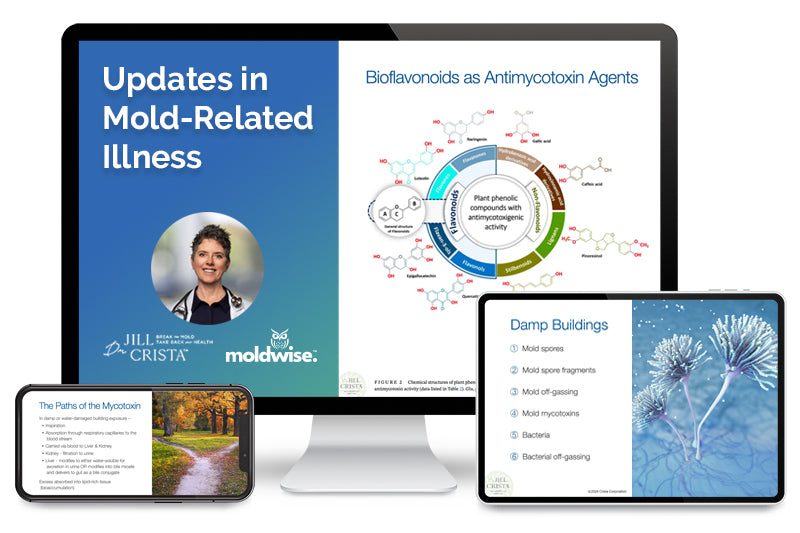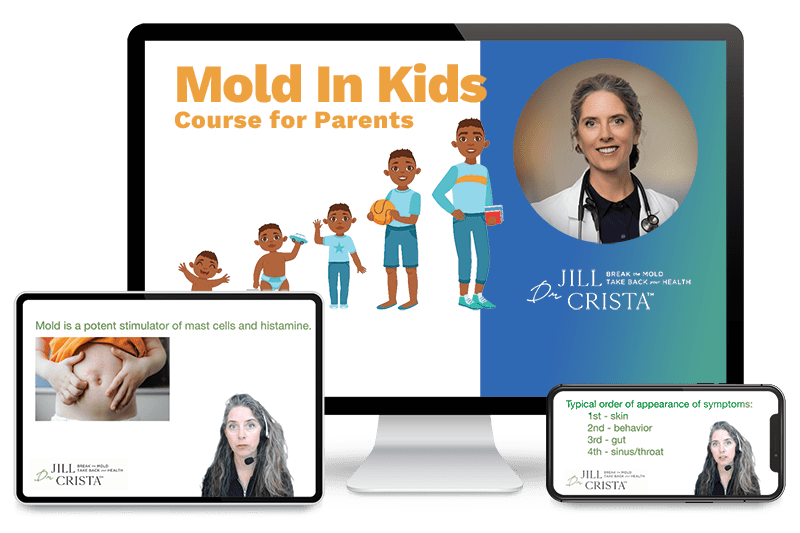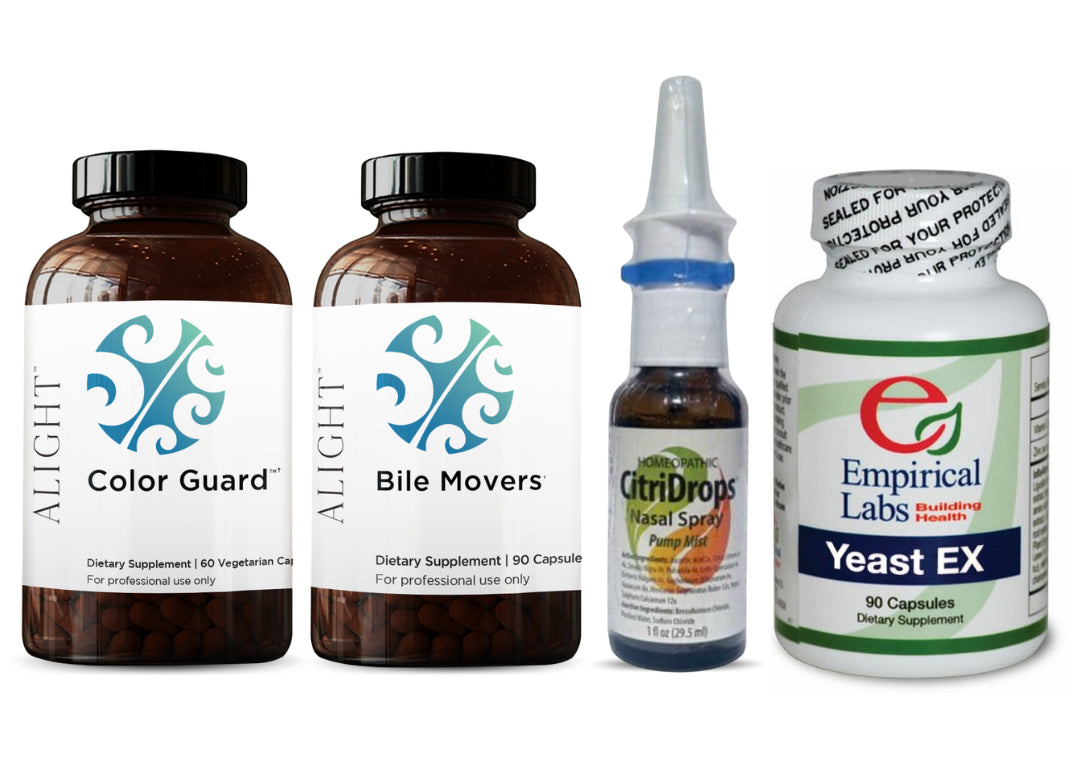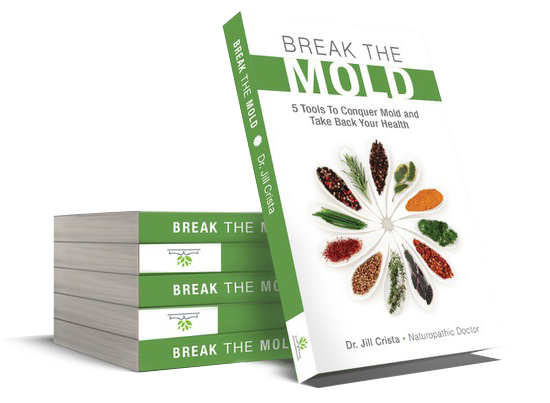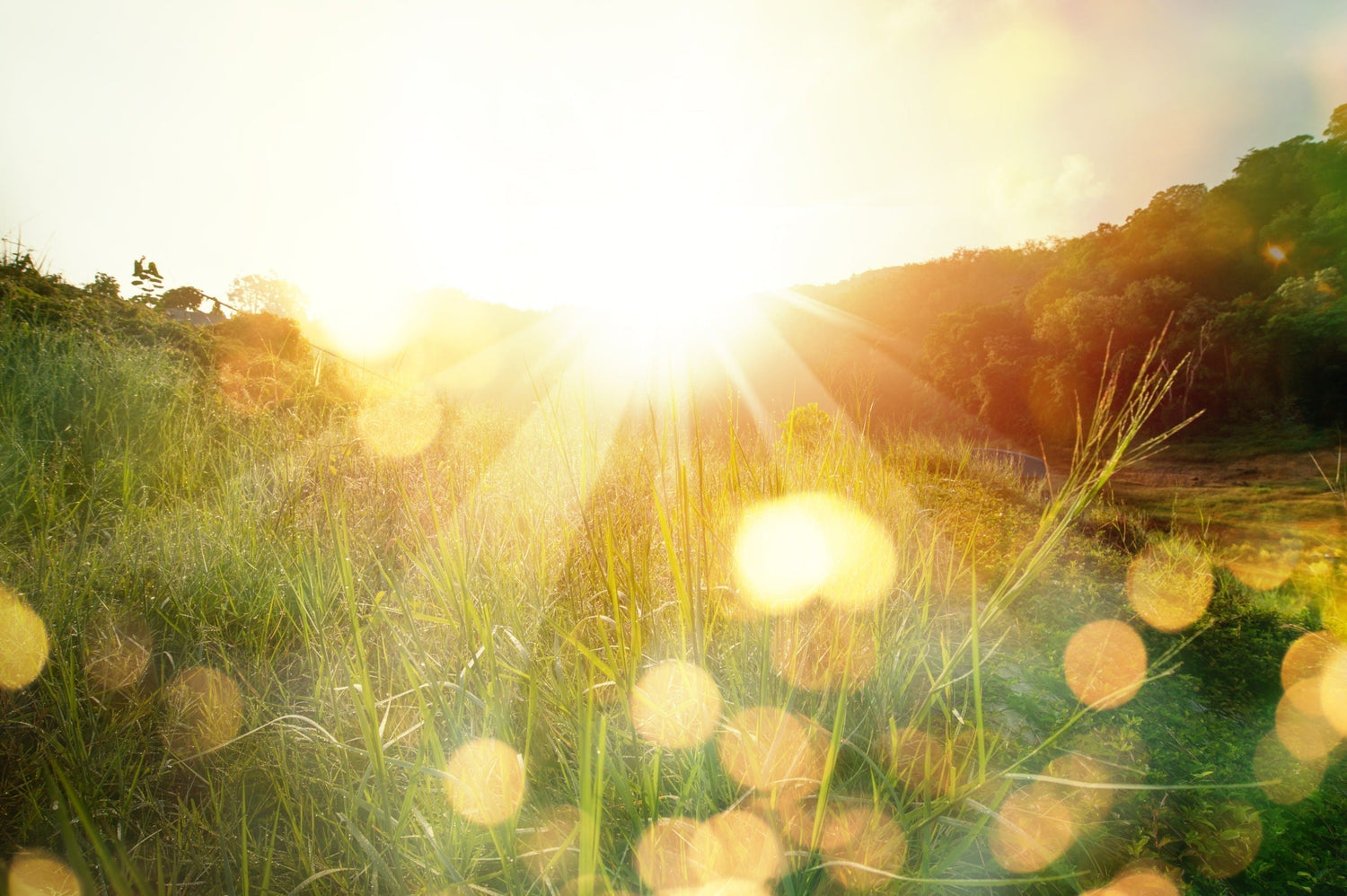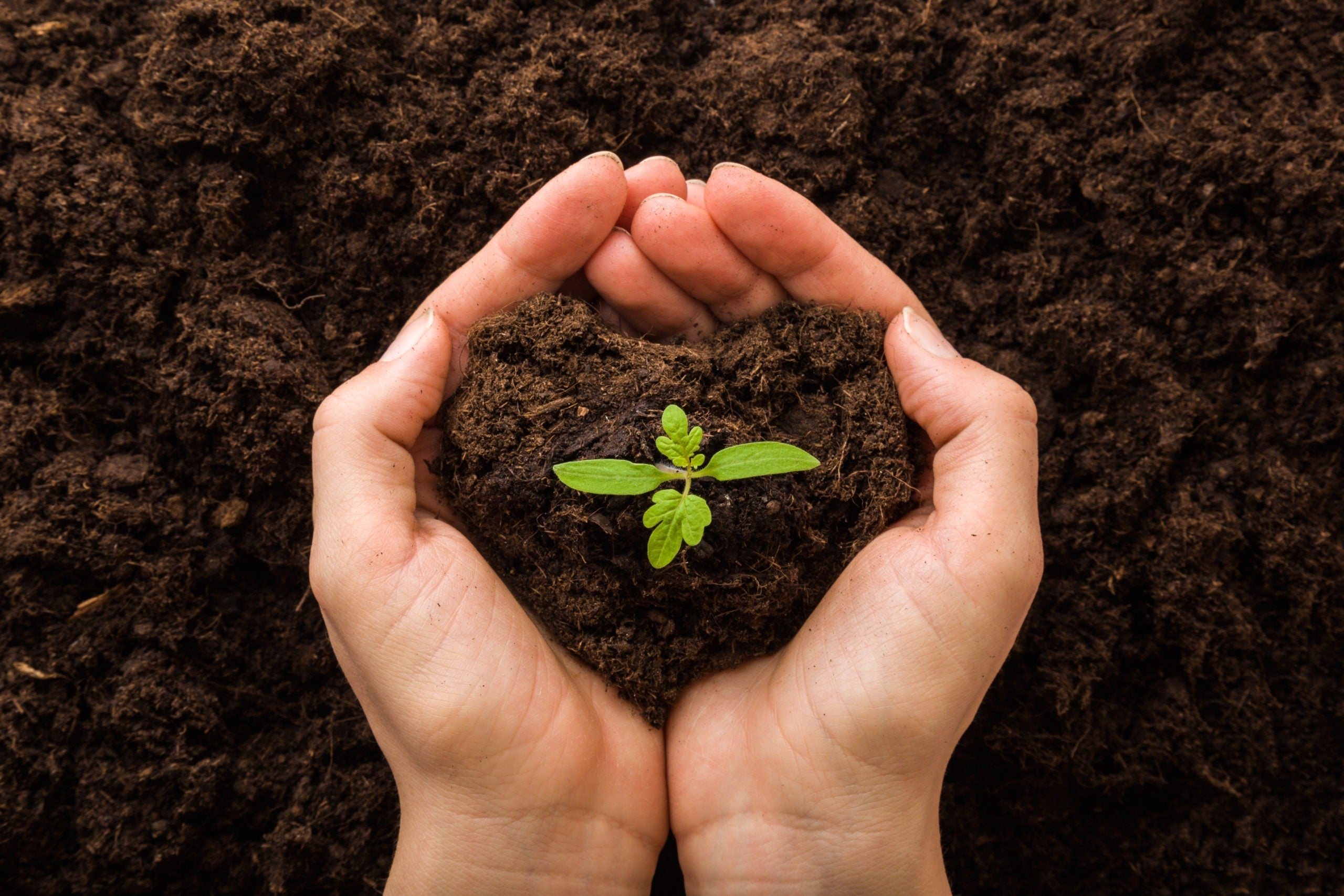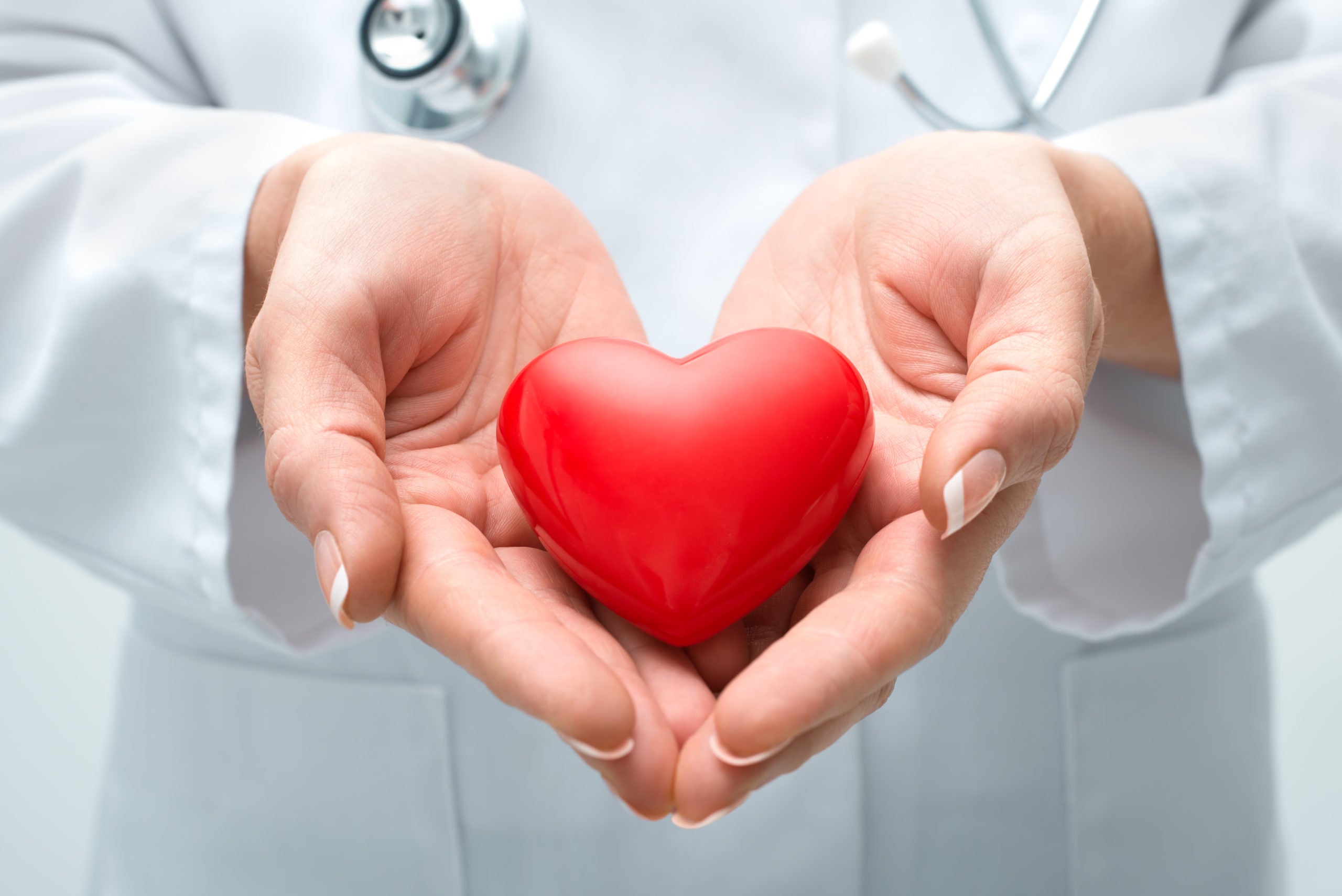If mold has you wide awake when you should be sleeping, you’re not alone.
I’m Dr. Jill Crista, naturopathic doctor, mold expert, and author of Break the Mold and A Light in the Dark for PANDAS & PANS. Today, I want to help you understand why mold flips your sleep upside down, and how to reset your rhythm using one of the simplest tools: morning grounding.
These are the same tools I share in the book to support families navigating mold exposure, disrupted sleep, and recovery. Ready for sleepy nights again? Let’s go.
How Mold Disrupts Your Circadian Rhythm
Mold messes with your circadian rhythm—the internal drumbeat that drives everything from energy and digestion to sleep.
- Circadian Disruption: Mold and mycotoxins confuse the body’s timing system, throwing off your sleep-wake cycle, energy, digestion, hormones, and mental focus.
- Night-Day Flipt: Mold can flip-flop our body’s sense of night and day, leaving you wired at night and exhausted during the day.
- Core to Recovery: Resetting this rhythm is a key part of recovery. I explain how to do this in A Light in the Dark for PANDAS & PANS.
Why Mold Causes Insomnia
I often tell my patients, “Mold makes you more like an owl than a human.” Here’s what that looks like:
- Nighttime Wakefulness: Many mold-affected individuals feel awake, alert, even hungry at night, instead of winding down.
- Daytime Fatigue: The next day they’re completely wiped out, disrupting energy and focus.
- Remedy Fatigue: They try every combination of remedies at bedtime with frustrating results, because they miss the daytime anchoring.
In A Light in the Dark for PANDAS & PANS, I show why good sleep starts in the morning and guide you step-by-step through the process.
The Power of Morning Daylight for Sleep
One of my favorite mold-sleep hacks is getting outside as early as possible for at least 10 minutes of natural daylight. Here’s why it helps:
- Anchors the Day: That morning light signals to your brain that it’s time to be awake, resetting your circadian rhythm.
- Improves Nighttime Sleep: My patients often report better sleep at night after consistently starting their day with light exposure.
- Creates Contrast: If you don’t anchor in the day, your body has no barometer for the night, enhancing sleep hygiene effectiveness.
This practice is one of the core rhythm-resetting tools I teach in A Light in the Dark for PANDAS & PANS.
Tips to Reset Your Sleep Cycle
If your rhythm is off, start by getting outside in the wee hours of the morning:
- Get Morning Daylight: Spend 10 minutes of daylight as close to sunrise as possible.
- Support with Herbs: Pair with melatonin and nervine herbs at night for better results.
- Keep It Consistent: Repeat each day. Your body needs the pattern to re-establish balance.
You’re Ready to Sleep Like a Human Again!
Mold-related insomnia doesn’t need to control your nights.
With morning grounding, gentle detox, and the rhythm-resetting steps in A Light in the Dark for PANDAS & PANS, you can reclaim natural sleep without relying on more bedtime supplements.
You’re not broken. And you’re not an owl. You’re a human who sleeps at night. You just need the right input at the right time. So get outside. Anchor your day. Reclaim your night.
For weekly recovery tips and deep dives into healing, join my newsletter.
You’ve got this, friend. Let’s get you sleeping again—starting tomorrow morning.
Disclaimer This content is health information and not intended as personal medical advice. Viewing will not establish a doctor-patient relationship. It is not intended to diagnose, treat, cure, or prevent any disease or medical condition. The information discussed is not intended to replace the advice of your healthcare provider. Reliance on information provided by Dr. Jill Crista, employees, or others appearing at the invitation of Dr. Crista is solely at your own risk.

